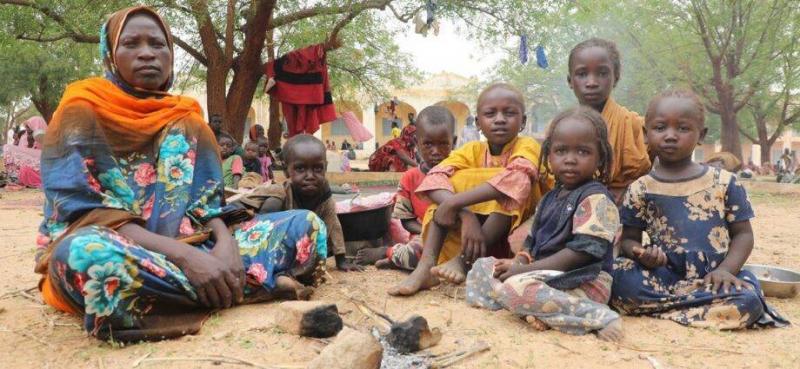More than a year has passed since the outbreak of the war in Sudan, during which much has changed, especially in the daily life of the Sudanese citizen who now faces tough living conditions and struggles to earn a daily livelihood. However, the resource-rich Sudan possesses a material that has become an important factor in the daily lives of the war and a source of funding for both sides of the conflict as well as for farmers. This material is gum arabic, an unknown ingredient used in the production of chocolate, soda, gum, sweets, and many other consumer goods. It is a tasteless and odorless dried sap used as a stabilizer, thickening agent, or emulsifier for various foods, beverages, cosmetics, and medicines.
Approximately 80% of the world's supply is harvested from Sudanese acacia trees, which grow in the desert belt that extends from Sudan's western border with Chad to its eastern border with Ethiopia, covering an area of about 200,000 square miles. For exporting this material, Sudanese traders must pass through the city of Al-Obeid, which is controlled by the Sudanese army and has been under blockade by the Rapid Support Forces since 2023. It is the main route in the country for exporting gum arabic, which goes to Chad and Egypt, as well as Port Sudan on the Red Sea.
This material has become a funding source for both sides of the conflict in the country, as traders head to the city of Al-Obeid in convoys and pay fees at the checkpoints of the Rapid Support Forces amounting to about $330, to pass through without their goods being looted. In addition to these payments, traders of gum arabic also give between $60 to $100 to the fighters of the Rapid Support Forces who accompany the traders' convoys in small trucks. One trader revealed that individuals who refuse to pay risk losing their goods and vehicles to the militias, according to a report by the Wall Street Journal.
Moreover, while the Rapid Support Forces collect money through their control of most major agricultural roads, the Sudanese army, which runs the de facto government in the country, imposes taxes and other customs fees on the gum arabic trade. In this regard, Rabie Abd Al-Aty, a Sudanese academic who has researched the gum arabic industry, stated, "The revenues from gum arabic exports directly fund this fighting."
Despite these concerns, only a few companies have taken steps to ensure they avoid Sudanese gum arabic, based on interviews with manufacturers, suppliers, and end users. Osama Idris, Managing Director of Murooj Goods in the UK, an importer and manufacturer of raw gum based in Weston-super-Mare in England, explained, "We don’t want customers to run out of gum arabic." He added that none of his clients, including candy, beverage, and flavor companies, have expressed concerns about sourcing gum arabic from Sudan.
For its part, Nestlé, which adds gum arabic to chocolate and gummy candies, stated that according to its suppliers, the small quantities it uses primarily come from Chad, Niger, and Mali. A spokesperson for Hershey chocolate company reported that the company expects all its suppliers to adhere to all laws in the countries they operate in. A spokesperson for Ferrero stated that the chocolate manufacturing company has strict due diligence procedures that all its suppliers must comply with, including assessments and field audits.
Some companies noted that halting purchases of Sudanese gum arabic could harm hundreds of thousands of Sudanese who rely on it for their livelihoods, many of whom are farmers or members of nomadic communities, at a time when UN agencies are warning of an imminent famine.




